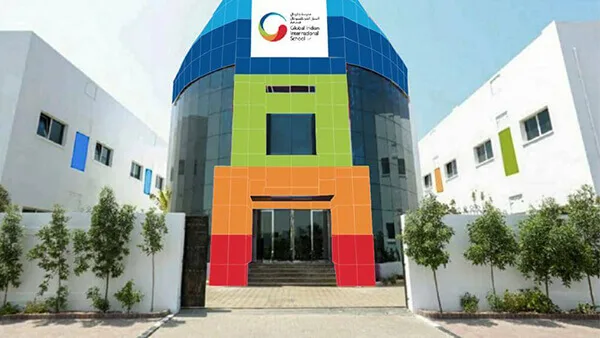As students, we want to do well in school, and a critical part of that is preparing for exams. However, studying can feel intense because there’s so much to learn in a short time. Don’t worry! The following are ten proven ways of making studying easier and getting better grades in less time. But first, let’s discuss why good exam preparation is significant.
● It helps you remember what you learn.
● It makes you feel more confident.
● It reduces stress.
● It improves how you manage your time.
● It makes you perform better.
● It gives you a sense of control.
● It boosts your motivation.
● It sharpens your problem-solving skills.
● It shows you where you need to improve.
● It encourages you to keep learning throughout your life.
Now let’s examine those 10 study methods to help you prepare for exams.
Top 10 Proven Study Techniques for Effective Exam Preparation
1. Active Reading Strategies
Active reading is a great way to focus and remember more while reading. Here are some simple strategies to start practicing:
● Pay attention to new words, especially the tricky ones, instead of skipping them.
● Look beyond the first sentence for the main idea; it might be in the second paragraph or on the second page.
● Create an outline before reading a challenging book, focusing on subtitles or connecting words between paragraphs.
● Use a pencil and sticky notes to highlight and make notes on important parts for better understanding.
2. Time Management
Try not to hold on until the end to study. Although some students manage to succeed by preparing at the last minute, for the most part, this is not the best action. To deal with your time better, make a study plan. List out all your exams and the days they’re on. Then, plan your study sessions appropriately.
It’s OK to invest more energy on specific exams than others; simply ensure you track down a balance that works for you. Remember that beginning early and spreading out your studying will assist you with grasping the material better and decrease pressure. So, prepare and adhere to your study timetable!
3. Re-write Class Notes
While reading something again isn’t an option, rewriting is a fantastic way to study. It’s great because it gets your brain really involved. When you rewrite notes, you’re basically putting information into your own words. This helps you understand it better and remember it longer.
Plus, it helps you organize what you’ve learned, so it’s easier to remember. And when you rewrite, you can figure out what parts you might not get and work on those. So, if students want to do better in an Indian international school, practicing rewriting is a smart move!
4. Use Flow Charts And Diagrams
Using pictures and drawings can make studying easier. When you begin learning about something new, try writing down what you already know and what you don’t. Make simple diagrams on one page to summarize your notes as you get closer to a test.
This makes it easier to remember all the important stuff during the test. Visual resources like these can help organize your thoughts and boost your memory. This also helps you to make studying less stressful and more effective.
5. Practice On Old Exams
Practicing with old test papers is a great way to prepare for exams. This is one of the exam preparation tips. Doing this helps you become familiar with how the questions are asked. Plus, if you set a timer, it can assist you with dealing with your time better during the real exam. So, it’s like training for a game match the more you practice, the better you’ll perform when it counts.
6. Take Notes
To stay focused in class, take notes that you can look back on later while you learn how to study better.
Taking notes helps you remember what you learn in class. These notes are helpful when you review for tests and do homework. After class, you can rewrite your notes to make them more transparent. Highlight important parts and ask your teacher if you need help understanding something.
You can also draw charts and maps to make studying easier. Some students find these helpful for remembering hard stuff. If you miss class, ask a friend for their notes so you can catch everything.
7. Set Up A Quiet Study Space
Having a special spot for studying is important so you won’t get disturbed. This helps you focus better. When you sit down to study in your special spot, your brain knows it’s time to learn. It’s easier to stay motivated this way. Pick a quiet, well-lit place where there isn’t much traffic.
Avoid studying in occupied places like the dining table, where you’ll continue to get hindered by family members. If you can’t find a decent spot at home, take a moment to go to your CBSE school or nearby library. They’re usually quiet and have special areas just for studying. Keep your phone silent, or turn it off to avoid distractions.
8. Summarize Important Details
To make information stick in your brain:
1. Try summarizing it in your own words.
2. Write a brief summary, either in paragraphs or as an outline.
3. Focus on the main points, not every detail.
Adding color to your notes can also help, as research suggests colored information is more memorable. Use colored pens or highlighters to emphasize key concepts.
After summarizing, reinforce your understanding by reading your summary aloud. This technique engages visual and auditory senses, making the information more likely to stay in your memory. So, summarize, use colors, and read aloud to enhance your learning experience.
9. Focus On Key Vocabulary
To learn about a topic it’s important to know its special words. These words are usually written in bold in textbooks. When you read, write them down. Then, find their meanings in a dictionary or at the back of the book.
You can create a study sheet with their definitions or make flashcards to remember them better. This way, you’ll become more familiar with the terms and understand the subject better. Learning new words helps you understand what you’re studying.
10. Join A Study Group
Studying together with friends can be one of the great study tips! When you join a study group, you can help each other understand tricky stuff by explaining it. You can also ask questions when something doesn’t make sense. Plus, you can quiz each other or play games to remember things better.
It’s like learning on turbo speed compared to studying alone! And guess what? Working in a group helps you learn skills like teamwork and solving problems, which are helpful later on. So, grab some pals and make studying fun by forming a study group!
Conclusion
To get ready for exams well, you need to use study methods that work best for you. Try reading actively and studying with friends to make the most of your efforts. Keep at it regularly and stay focused on what you want to achieve. With these study techniques given in the blog, you can do great on your exams and succeed in school.
FAQs
1. How can I focus 100% on studying?
Here are three easy exam tips to help you focus better when studying:
● Avoid things that distract you, like your phone or TV.
● To maintain your energy, eat nutritious snacks.
● Remember to take short breaks to rest your mind.
You may optimize your study time and improve your concentration by following these easy steps.
2. Do toppers study daily?
Toppers don’t study for long periods at once. They adhere to a daily routine and study routinely. Most successful students say that studying for 5 to 6 hours daily is sufficient if you stay focused and avoid interruptions. Following a timetable and setting aside minutes for studying and fun exercises is significant for doing well.
3. How can I study smart?
To learn better, use these four standard studying methods: seeing, hearing, reading/writing, and kinesthetic.
4. How can I learn faster without forgetting?
Study your notes regularly to help you remember them better. Quiz yourself on what you’ve learned to improve your memory. Connect new things you learn with what you already know to help you understand and remember them more easily.
































